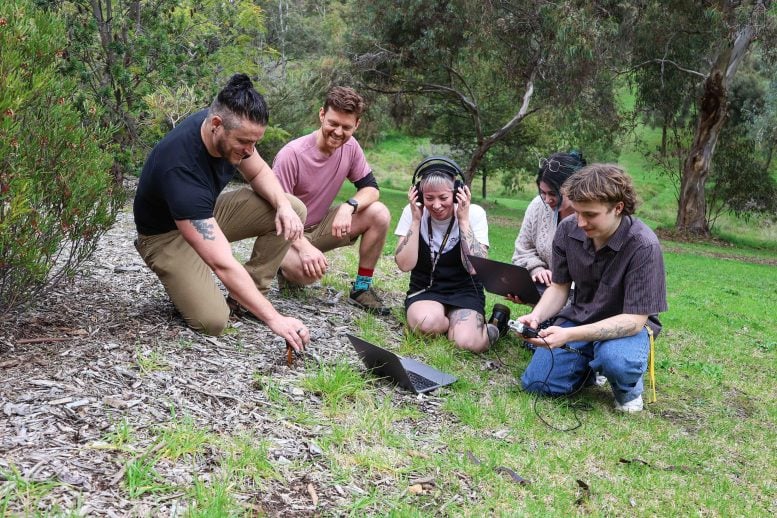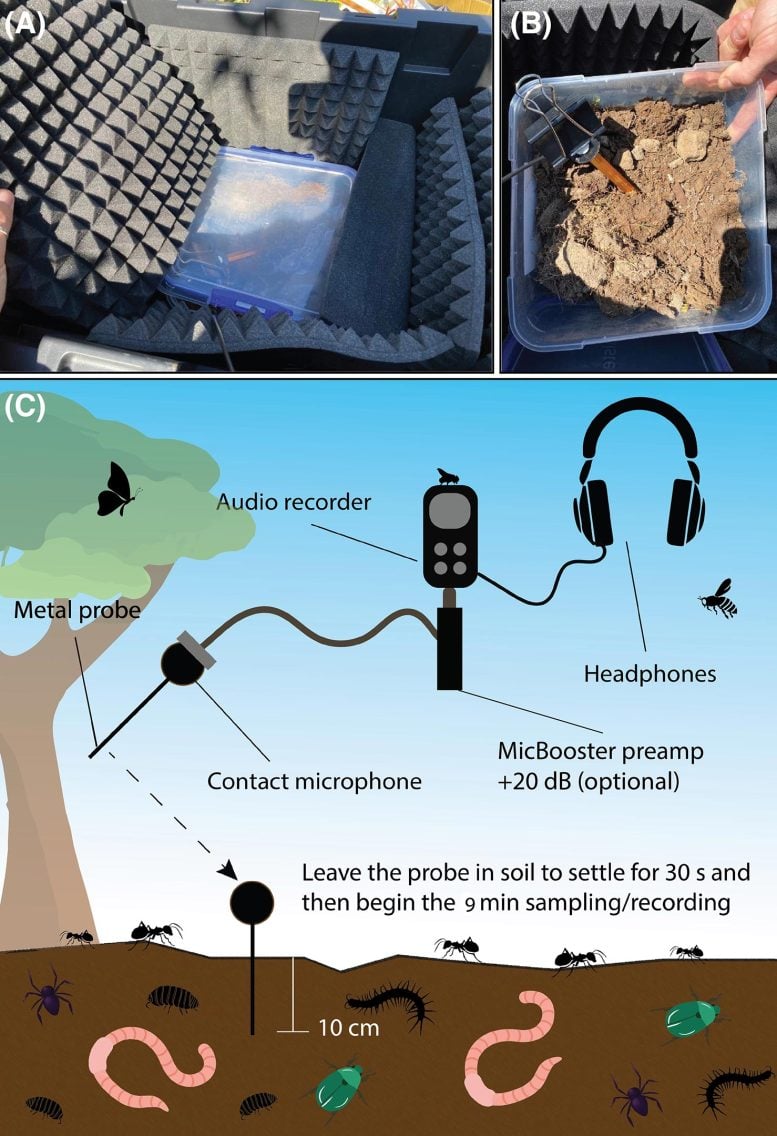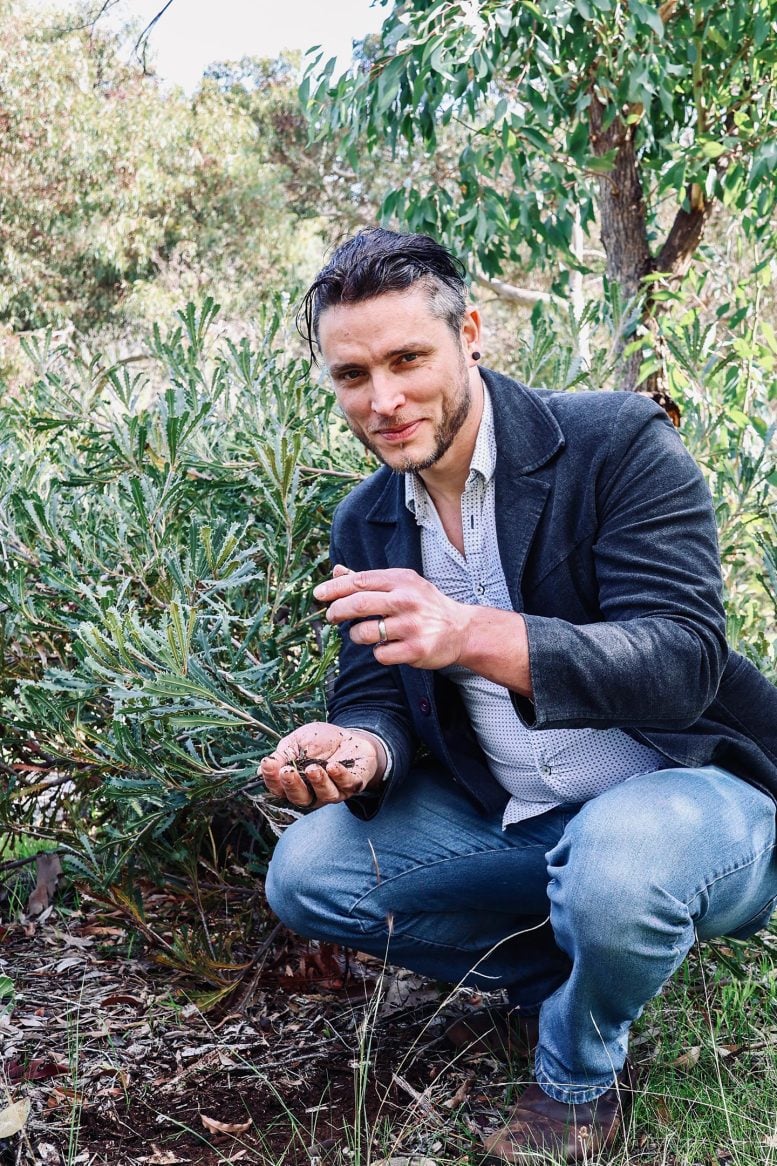Eco-acoustic studies at “Restoring and monitoring soil biodiversity has never been more important. “Although still in its early stages, ‘eco-acoustics’ is emerging as a promising tool to detect and monitor soil biodiversity and has now been used in Australian bushland and other ecosystems in the UK. “The acoustic complexity and diversity are significantly higher in revegetated and remnant plots than in cleared plots, both in-situ and in sound attenuation chambers. “The acoustic complexity and diversity are also significantly associated with soil invertebrate abundance and richness.” The study, including Flinders University expert Associate Professor Martin Breed and Professor Xin Sun from the Chinese Academy of Sciences, compared results from acoustic monitoring of remnant vegetation to degraded plots and land that was revegetated 15 years ago. The passive acoustic monitoring used various tools and indices to measure soil biodiversity over five days in the Mount Bold region in the Adelaide Hills in South Australia. A below-ground sampling device and sound attenuation chamber were used to record soil invertebrate communities, which were also manually counted. “It’s clear acoustic complexity and diversity of our samples are associated with soil invertebrate abundance – from earthworms, beetles to ants and spiders – and it seems to be a clear reflection of soil health,” says Dr. Robinson. “All living organisms produce sounds, and our preliminary results suggest different soil organisms make different sound profiles depending on their activity, shape, appendages, and size. “This technology holds promise in addressing the global need for more effective soil biodiversity monitoring methods to protect our planet’s most diverse ecosystems.” Reference: “Sounds of the underground reflect soil biodiversity dynamics across a grassy woodland restoration chronosequence” by Jake M. Robinson, Alex Taylor, Nicole Fickling, Xin Sun and Martin F. Breed, 15 August 2024, Journal of Applied Ecology.
Advancements in Eco-Acoustics


DOI: 10.1111/1365-2664.14738
This website uses cookies so that we can provide you with the best user experience possible. Cookie information is stored in your browser and performs functions such as recognising you when you return to our website and helping our team to understand which sections of the website you find most interesting and useful.













/https://tf-cmsv2-smithsonianmag-media.s3.amazonaws.com/filer_public/d1/82/d18228f6-d319-4525-bb18-78b829f0791f/mammalevolution_web.jpg)






Discussion about this post